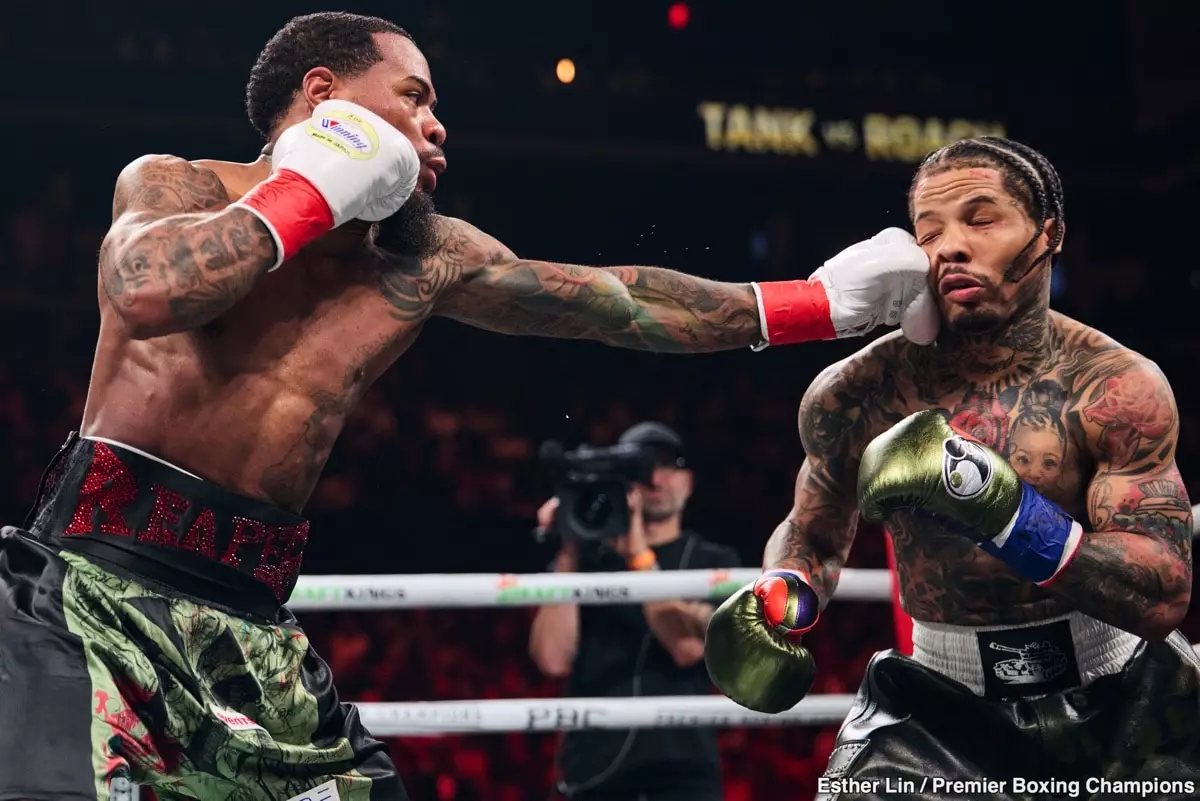In the landscape of contemporary combat sports, few events generate as much hype as a high-profile exhibition match, and the impending showdown between Gervonta “Tank” Davis and Jake Paul epitomizes this phenomenon. While many fans are captivated by the spectacle, it’s imperative to recognize that this bout sheds light on a profound imbalance—one of boxing prowess and legacy. Davis, a legitimate champion boasting a formidable skills set and the WBA lightweight title, represents the pinnacle of refined boxing ability. Conversely, Paul, primarily a social media sensation turned boxer, lacks the technical foundation that defines true greatness in the ring.
Yet, what is truly revealing about this fight isn’t solely the skill differential but what it exposes about the current state of boxing—where entertainment often trumps genuine athletic competition. Paul’s charisma and marketing acumen have garnered immense attention, allowing him to position himself as a credible opponent despite stark disparities in experience and skill. The result? A spectacle engineered more for viral moments and subscriber counts than for legitimate sporting rivalry. This cultural shift reduces boxing from a sport rooted in discipline and technique to a platform for spectacle, where personality and promotion overshadow mastery and tradition. Fans must critically assess whether such bouts dilute the integrity of boxing or if they mirror the sport’s evolution into an entertainment industry driven by sensationalism.
The Mirage of Victory and the Power of Persuasion in the Fight Hype
Despite the evident technical gap, the narrative around the Davis-Paul fight fuels an intriguing psychological battle—one of persuasion and perception. Paul’s adeptness at self-promotion insists that he has a shot, even if logic suggests otherwise. This isn’t merely about boxing; it’s an exercise in brand-building, where the story becomes more compelling than the actual contest. The persuasive power of Paul’s narrative, combined with the widespread appeal of underdog stories, continues to draw viewers who crave excitement rather than pure skill.
Meanwhile, Davis’s attitude might veer towards indifference, viewing this event as just another lucrative payday rather than a legacy-defining moment. This attitude hints at a broader trend in boxing where fighters prioritize financial gain over pursuit of greatness. It raises uncomfortable questions: Is the sport’s integrity being compromised by these spectacle fights? Or are they simply a reflection of modern athletes’ priorities—where social media influence and bank accounts take precedence over sportsmanship and skill?
The Unmet Promises and the Shift of Focus to Other Contenders
One of the most compelling subplots in this saga involves Tank’s recent reluctance to engage in a rematch with Lamont Roach Jr., whose frustrations have been evident. The anticipated rematch, which could have been a critical test for Davis and an opportunity for redemption for Roach, appears to have been shelved in favor of bigger paydays or more lucrative promotional opportunities. From Roach’s perspective, this move signifies a troubling trend: fighters are increasingly opting to dodge genuine challenges in favor of easier, more profitable fights.
Roach’s public display of disappointment highlights how modern boxing is often driven by financial motives rather than meritocracy. Despite a respectable record and a legitimate title at 130 pounds, Roach finds himself sidelined, disillusioned, and perhaps disillusioned for good. Nevertheless, the door seems open for him to face other top contenders like WBC champion Shakur Stevenson—a fight that could restore some legitimacy to his career. But even such potential opportunities are suspect in a landscape where fighters navigate their careers based more on marketing angles than competitive fairness.
What does this say about the state of boxing? It suggests a landscape where genuine rivals are often pushed aside, and fighters chase paydays, star power, and social media clout rather than true athletic achievement. The sport’s values seem increasingly skewed toward showmanship rather than tradition and skill. While the superficial allure of big-money bouts and viral moments can attract fans, it also risks diluting the sport’s historical significance and the pursuit of authentic greatness. Boxing, at its best, is about overcoming adversity, mastering technique, and leaving a legacy—traits that are often overshadowed in today’s commercial-driven climate. If the sport continues down this path, it faces a future where entertainment replaces excellence, and meaningful rivalries are replaced by spectacle for spectacle’s sake.

